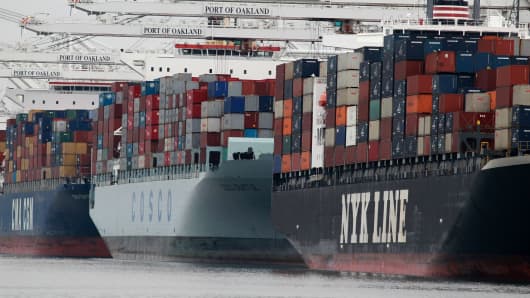Seeking to calm concerns about his plans to slap tariffs on imported steel and aluminum, President Donald Trump on Friday expressed confidence that he can "win" a global trade war.
But as with any war, there would be casualties. And exporters in some industries and regions of the country would be hit harder than others.
A lot depends on where those exports are sold. West Coast states rely more heavily on Chinese markets. Border states generate some of the biggest demand from Canada and Mexico. New Mexico, for example, sends 45 percent of its exports south of the border. Michigan sells more than 40 percent of its exports to Canada.





